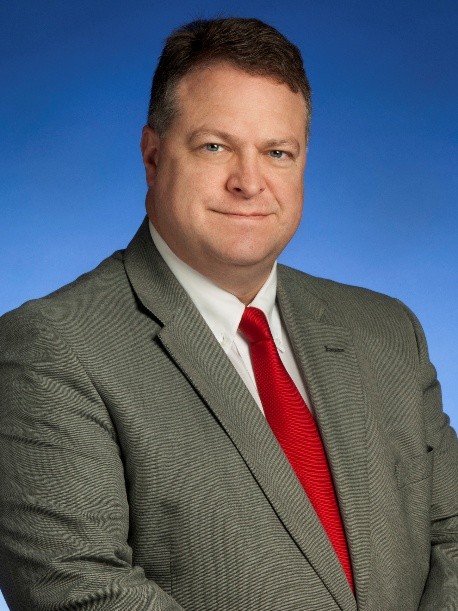Blog Posts
 March 19, 2025Leadership Advancement through Mentorship
March 19, 2025Leadership Advancement through MentorshipBy: Dr. Robin Westerik
As working professionals, we often find ourselves seeking guidance, support, and wisdom from others who have walked similar paths. These mentors—both formal and informal—can help us tap into our potential. Mentoring can be a powerful tool for personal and professional growth, providing us with valuable insights, new perspectives, and fresh ideas to inform your daily habits and practices. But, where do you start when looking for a mentor? And what qualities should you look for in someone who will guide and support your career development?
In this Wednesday leadership blog edition, we identify three major things to consider when looking for mentors: yourself, the pool of mentors, and mentors for hire.
Self-Assessment and Mentors
Firstly, it's essential to identify what you hope to achieve through mentoring. Are you seeking guidance on specific aspects of your job? Or perhaps you're looking for general advice on how to navigate the profession? Maybe you’re thinking more long term and need career planning advice or key leadership skill advancement recommendations. Clarifying your goals will help you focus your search and ensure that you find a mentor who can provide the support you need. Next, consider reaching out to colleagues, peers, or even former professors who have demonstrated expertise in areas relevant to your interests and see what they recommend. You might even find your mentor in the process.
Personality fit is also important and it begins with another self-assessment. We’ll touch on assessing the personality traits of potential mentors in a moment, but first you’ll need to assess your own personality, temperament, and shortcomings. This exercise should also help you determine the types of people who you work well with and easily find friendly chemistry. In general, though, when searching for a mentor, look for individuals with qualities such as empathy, honesty, and a willingness to listen. A good mentor should be able to offer constructive feedback, provide encouragement when needed, and share their own experiences and insights gained over the years.
With these self-assessments complete and a clear idea of your goals for mentorship and also some general characteristics for possible mentors, you’re now ready to assess the mentor pool.
Assessing the Mentor Pool
If you work at a large corporation or have a large existing professional network, chances are you have a lot of potential candidates for mentors. The rest of us, though, will have to work a little harder to identify quality mentors that align with our goals. Or, we may have a large pool of potential mentors who are not suitable for one reason or another such as a lack of interest on their part, a potential personality conflict, socio-economic or pay-grade distance between you and them, etc. Or, maybe you just haven’t gotten up the courage to approach them and initiate a mentorship.
Assessing your mentor pool, then, will be as personalized an experience as assessing your goals for mentorship. The one key piece of advice I would give is to look for potential mentors with diverse skill sets. Finding a mentor doesn't necessarily mean seeking out someone who is an expert in every area relevant to your interests. Sometimes, it's more beneficial to find someone with complementary strengths and weaknesses – someone who can learn alongside you as much as they guide you. This collaborative approach can foster mutual growth and development for both parties. A mentor with a skill set different from your own may have connections outside your profession that can help your career trajectory long term.
Mentors for Hire
If you’re looking for a more formal mentorship, there are many professional programs offering mentorship and coaching certifications. For example, here at the Madison School of Professional Development Coaching Academy, we offer various accredited coaching programs designed to bring direction and guidance to your life and your professional activities. These guided programs are designed to maximize an individual’s personal and professional potential and equip graduates with the skills they need to pass on their knowledge to others as mentors and coaches.
The academy offers 4 Coaching Programs:
Certified Life Coach Program: A foundational six-month program accredited for 87 hours, where participants can choose up to four distinct designations based on their niche.
Certified Emotional Intelligence 101 Program: A foundation six-hour program accredited on training to develop your emotional intelligence coaching skills.
Certified Coach Practitioner Program: A standalone, fast-track 12-hour program, specifically designed for psychologists, HR practitioners, counselors, and teachers.
Certified Executive Coach: An intensive program focusing on executive coaching for 33 hours.
Click this link to learn more about the MSPD Coaching Academy Programs
Final Thoughts
Which every path you choose—formal or informal—finding a mentor is an essential step toward personal and professional growth and success. By identifying your goals, seeking out individuals with relevant expertise and qualities, or by joining a formal mentor program, you'll be well on your way to developing meaningful relationships that can support your career development for years to come.
Dr. Westerik is the President of the Madison Education Group and holds a doctoral degree in business. Dr. Westerik has worked in the higher education space for over 20 years and specializes in university administration and operational effectiveness.
 April 07, 2025Thinking About Leadership: Leadership Theories
April 07, 2025Thinking About Leadership: Leadership Theories April 16, 2025Thinking About Leadership: Leadership Styles
April 16, 2025Thinking About Leadership: Leadership Styles April 18, 2025MEG Launches New Leadership Certificate Program
April 18, 2025MEG Launches New Leadership Certificate Program April 23, 2025Thinking About Leadership: Leadership Best Practices
April 23, 2025Thinking About Leadership: Leadership Best Practices April 25, 2025Lancaster Selected to Facilitate BUS 302 Leadership Principles
April 25, 2025Lancaster Selected to Facilitate BUS 302 Leadership Principles